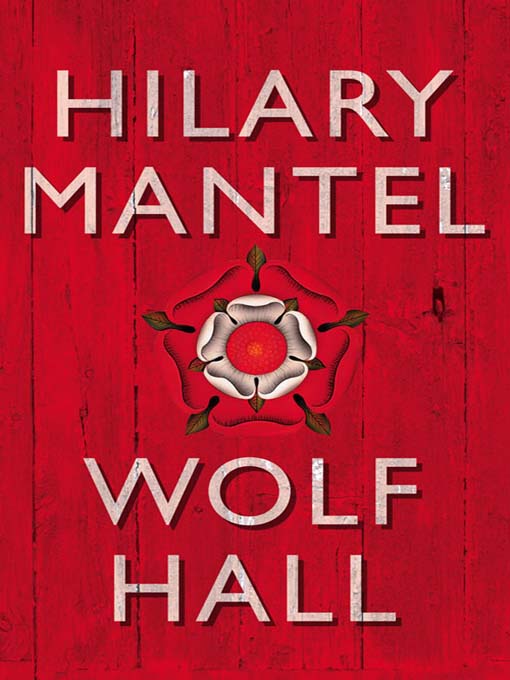 We have all sat in lecture halls, discerning Shakespearean insight into history textbook drama. We have been seduced by the beautiful portrayals--the high collar lace and bodice of Hollywood--in The Other Boleyn Girl and Showtime’s The Tudors. Countless books have been written. And still our fascination with Henry VIII’s brutal, passionate reign over 16th century England lives on. We are enamored by the soap-like drama: desire, anguish, exultation, deals, spies, decapitations, and fabulous clothes (1). While we are captured and amused by Anne Boleyn’s seduction and Henry’s child-like temper, we forget the sociopolitical backdrop: England was in the midst of a religious upheaval. The man seated in the heavens, pulling the strings of his royal marionettes, was the infamous Thomas Cromwell.
We have all sat in lecture halls, discerning Shakespearean insight into history textbook drama. We have been seduced by the beautiful portrayals--the high collar lace and bodice of Hollywood--in The Other Boleyn Girl and Showtime’s The Tudors. Countless books have been written. And still our fascination with Henry VIII’s brutal, passionate reign over 16th century England lives on. We are enamored by the soap-like drama: desire, anguish, exultation, deals, spies, decapitations, and fabulous clothes (1). While we are captured and amused by Anne Boleyn’s seduction and Henry’s child-like temper, we forget the sociopolitical backdrop: England was in the midst of a religious upheaval. The man seated in the heavens, pulling the strings of his royal marionettes, was the infamous Thomas Cromwell.Historically, Cromwell has been painted as a manipulative, power-hungry fiend, concerned only with the guise of pleasing His Majesty in order to climb the social latter into Court. For eight crucial years in the 1530s as the most powerful political figure in Henry VIII’s England, Cromwell orchestrated the King’s momentous break with Rome, the dissolution of the monasteries and the seizure of their wealth, and the execution for treason of Sir Thomas More, Bishop John Fisher, the Carthusian monks, and many, many others. And, as both The New Yorker and The New York Review have remarked: You cannot achieve total reformation without “breaking some eggs” (1,2).
Therefore, to undertake such a strongly disliked character and make him the subject of a five-hundred-and-thirty-two-page novel would be quite a feat. What’s more, is making him the protagonist, a wise minister and decent man. In Hilary Mantel’s Man Booker Prize-winning novel, Wolf Hall (Henry Holt, $27), she concedes to do just that.
Mantel does not negate to tell of the horrific happenings under Cromwell’s leaden hand, nor does she make excuses for his actions. What she so brilliantly does, is shift the historical paradigm and shed light from a different angle. The Cromwell of Wolf Hall has some of the qualities that his enemies feared and detested--toughness, wiliness, worldliness--but as Mantel depicts them, they are qualities in the service of survival, success, and even a measure of decency in a cruel and indecent world (2). Moreover, Mantel succeeds in lighting Cromwell so well by setting him against the perverse, dark religious fanatic, Thomas More. More, as Mantel depicts him, is so clouded by his Catholic duty that he is dangerous to Britain-- he is the only separation between Britain the medieval fiefdom and Britain the modern nation-state (3). Comparatively, in Mantel’s modern secular mindset, Cromwell makes the stronger leader.
In the most fully realized historical fiction, the historical figures are not merely shadows moving the background but engaging, colorful presences with thoughts and feelings and fears. Wolf Hall is written in a third person omniscient narrative, with Thomas Cromwell as its point of view. Readers are brought microscopically close to Cromwell; we are able feel with intensity the growing tension in Court or the pressure mounting in a sixteenth century mind. Mantel writes in a kind of credo:
Forget the coronations, the conclaves of cardinals, the pomp and processions. This is how the world changes: a counter pushed across a table, a pen stroke that alters the force of a phrase, a woman’s sigh as she passes and leaves on the air a trail of orange flower or rose water; her hand pulling close the bed curtain, the discreet sigh of flesh against flesh.
The historical novel is always, therefore, an act of conjuring: the illusion of reality, the ability to summon up ghosts (2).
Wolf Hall is moving like a freight train caught in Newtonian inertia-- barreling toward nationwide praise and readership and unable to stop. The New Yorker surmises that Mantel should be “congratulated for creating suspense about matter whose outcome we’ve known since high school”. I agree. However, what is more important is that we have an official voice to question our staid belief in the textbook, or more candidly persuade us that history--and reality for that matter-- is subjective.
(1) Taken from The New Yorker
(2) Taken from The New York Review of Books
(3) Taken from The Washington Post
